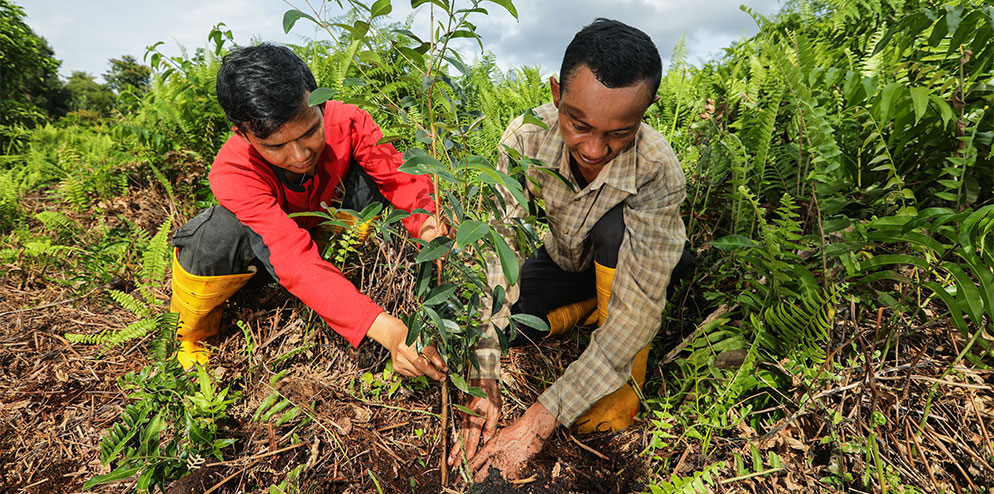Community participation and sustainable economic activity is a vital aspect of environmental and biodiversity conservation on the Kampar Peninsula.
RER works with villagers in Sangar sub-village and Segamai village on Kampar Peninsula, and in four villagers on Padang Island, to support no-burn vegetable farming. The farming programme has been set up to prevent the risk from the common practice of slash and burn farming and to provide the communities living around RER with an alternative method of land preparation that will produce valuable food crops.
The communities are initially provided with seedlings of mainly vegetable crops such as red and green chili, red ginger, eggplant, tomato, cayenne and green beans together with equipment and supplies like hand tools and fertilisers. A field school is organized regularly as a learning platform for the community to discuss problems and improve techniques for crop productivity.

In 2017, in Dusun Sangar, where this program is managed by BIDARA, a partner of RER, a 3.5-hectare plot was planted with various vegetables. Red chili was the most attractive crop at that time, generating significant income for 18 households who were members of the Joint Advanced Farming Group. On Padang Island, RER also collaborated with Laskar Alam, which assisted farming groups in four villages by establishing horticultural demonstration plots. Each farming group managed the cultivation and harvesting of chili, bird’s eye chili, and tomatoes. In 2017, after several harvest cycles, the practice of non-burning agriculture successfully provided additional income in these four villages.